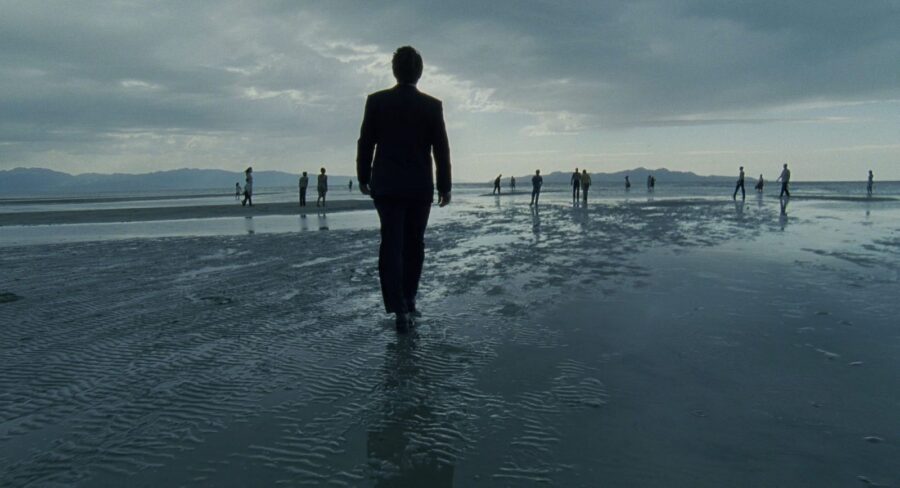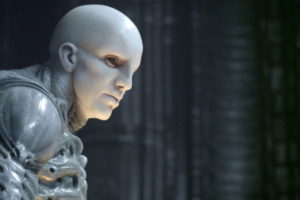This upcoming Sunday is Oscar Sunday. The 84th annual Academy Awards ceremony will announce the best efforts in the film industry from 2011. Perhaps the most coveted award, Best Picture, will be decided among 9 nominees. The only film from 2011 to be nominated that I saw was The Tree of Life (I should have been able to include Harry Potter and the Deathly Hallows: Part Two in this list… Biggest snub of the year). The Tree of Life has also been nominated for Best Director and Best Cinematography. I must say, I really did enjoy the movie. It’s very artsy and unconventional, but I found myself appreciating every bit of it. For those of you who haven’t seen it I won’t ruin anything in regards to the narrative. What The Tree of Life does best is make you consider the role of suffering at the individual and the cosmic level. Essentially, the movie is a cinematic theodicy that draws out some of the sentiment of the story of Job, particularly the discourses that come directly from God. For this reason I highly recommend the The Tree of Life. But be warned, it’s not a “normal” movie.
The main reason why I enjoyed this film so much is because Job has always been central to my understanding of theodicy. Theologians and apologists constantly give various arguments related to the Problem of Evil (such as the Free Will argument: cf. C. S. Lewis’ Mere Christianity). But what I rely upon personally is the narrative of Job. Ultimately, I’m left hearing the words of God directed towards Job: were you there?
It’s a simple question, really. It probably won’t satisfy too many people, but it gets me every time. I wasn’t there when God created everything. You see, the problem is our limits: limited perspective, limited experience, and limited understanding. We are, as it were, inside the box. We can make sense of our box to a degree: discover new places within the box, various phenomena that occur within the box, and gain all sorts of knowledge about the box. Thus, we can have real and true knowledge about this box that we live in. But when someone outside the box — indeed the creator of the box — communicates to us and describes more details about the box, different plans for the box, and purposes for the box, we have to trust that person.
There is a Jewish apocalyptic text that I’d like to address in relation to these ideas known as 4 Ezra. This text is not canonical for Protestants (although an expanded form of it known as 2 Esdras is included in the Apocryphal texts of the Catholic canon), yet it is valuable for our reflection on this topic. This text was likely written around 100 AD and is addressing the central concerns of the time for the Jewish people in light of the fall of Jerusalem and the destruction of the temple in 70 AD. The section I have in mind is worth citing in full:
Then the angel that had been sent to me, whose name was Uriel, answered and said to me, “Your understanding has utterly failed regarding this world, and do you think you can comprehend the way of the Most High?” Then I said, “Yes, my lord.” And he replied to me, “I have been sent to show you three problems. If you can solve one of them for me, I also will show you the way you desire to see, and will teach you why the heart is evil.” I said, “Speak on, my lord.”
And he said to me, “Go, weigh for me the weight of fire, or measure for me a measure of wind, or call back for me the day that is past.” I answered and said, “Who of those that have been born can do this, that you ask concerning me these things?” And he said to me, “If I had asked you, ‘How many dwellings are in the heart of the sea, or how many streams are at the source of the deep, or how many streams are above the firmament, or which are the exits of hell, or which are the entrances of Paradise?’ perhaps you would have said to me, ‘I never went down into the deep, nor as yet into hell, neither did I ever ascend into heaven.’ But now I have asked you only about fire and wind and the day, things through which you have passed and without which you cannot exist, and you have given me no answer about them!” And he said to me, “You cannot understand the things with which you have grown up; how then can your mind comprehend the way of the Most High? And how can one who is already worn out by the corrupt world understand incorruption?” When I heard this, I fell on my face and said to him, “It would be better for us not to be here than to come here and live in ungodliness, and to suffer and not understand why.”
He answered me and said, “I went into a forest of trees of the plain, and they made a plan and said, ‘Come, let us go and make war against the sea, that it may recede before us, and that we may make for ourselves more forests.’ And in like manner the waves of the sea also made a plan and said, ‘Come, let us go up and subdue the forest of the plain so that there also we may gain more territory for ourselves. But the plan of the forest was in vain, for the fire came and consumed it; likewise also the plan of the waves of the sea, for the sand stood firm and stopped them. If now you were a judge between them, which would you undertake to justify, and which to condemn?” I answered and said, “Each has made a foolish plan, for the land is assigned to the forest, and to the sea is assigned a place to carry its waves.” He answered me and said, “You have judged rightly, but why have you not judged so in your own case? For as the land is assigned to the forest and the sea to its waves, so also those who dwell upon the earth can understand only what is on earth, and he who is above the heavens can understand what is above the height of the heavens.”
4 Ezra 4.1-21 [translation by Bruce Metzger].
Undoubtedly the perspective adopted here was informed by Job. Job’s particular theodicy contains a perspective that was adopted by some Jews even after AD 70, as 4 Ezra shows. And it is a perspective that underlines the 2011 Best Picture nominee The Tree of Life. I believe it is a crucial perspective to adopt. When we think inside the box we’ll never make sense of evil, but when we think outside the box we can begin to come to grips with the existence of, and the limited reign of, evil.





2 Comments
Leave your reply.